How 20 Delhi Volunteers Are Helping 300 Underprivileged Youth Become Job-Ready
Project Abhyudaya is an initiative specializing in skill development for young people from lower socio-economic backgrounds.
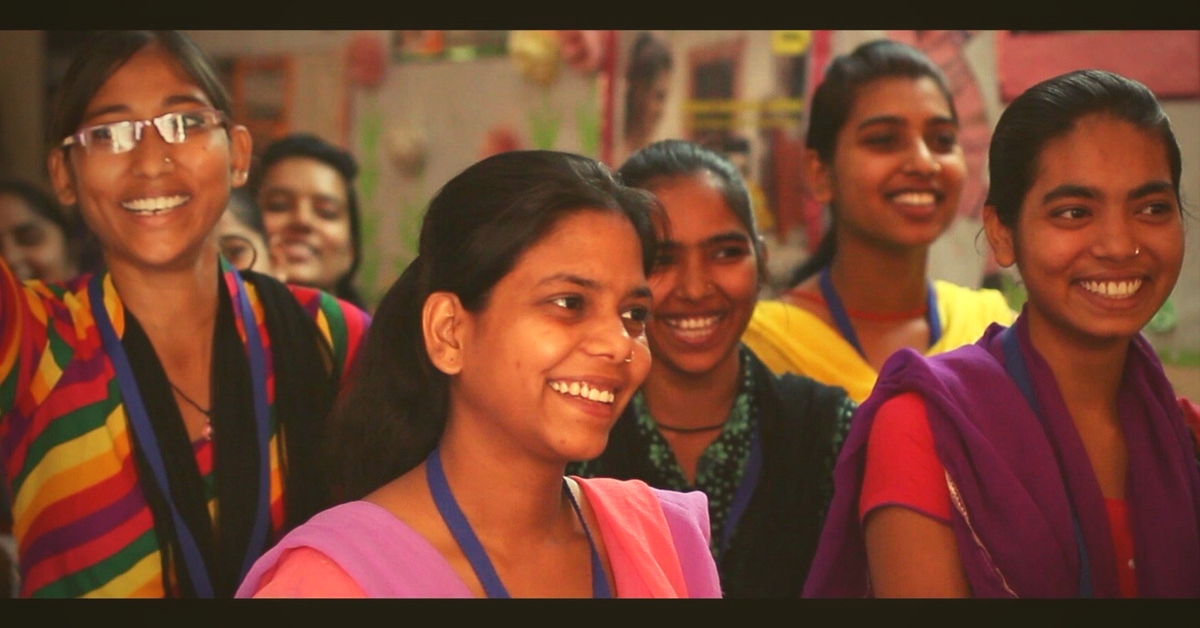
Four friends, 20 volunteers, and 300 beneficiaries who received an opportunity to grow and develop their skills to succeed in life — this, in a nutshell, is the story of Project Abhyudaya, an initiative specializing in skill development for young people from lower socio-economic backgrounds.
Started by four friends of varied professional backgrounds, Abhinav, Mrinal, Priyanka, and Aditi, Project Abhyudaya works in association with Empower Pragati, a partner company of the National Skill Development Corporation of India. The initiative focuses on improving the standards of vocational training by conducting weekly sessions that help build self-confidence, communication skills, coping mechanisms and prepare students for placement interviews.
The Beginning:
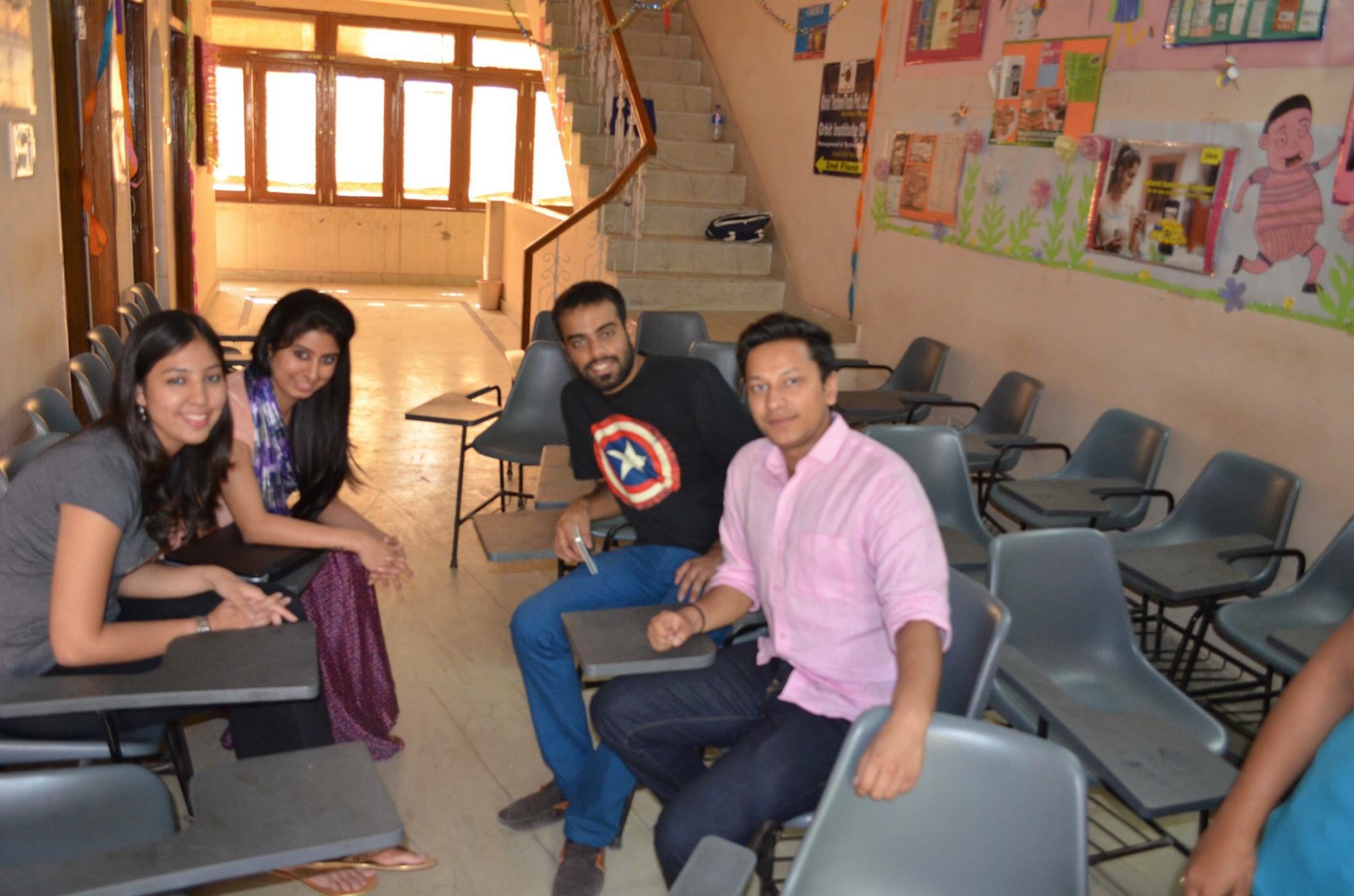
It all started with Mrinal telling Abhinav about a skilling centre that he had recently visited and the kind of interactions he had with the students.
“The conversation led to the thought and realisation that most young people in India never interact with the many others who work for them on a daily basis — like the courier guys, guards, domestic helpers, etc. Most of us don’t know anything about their situation as well as we should. But since our country has so many young people, the youth should help the youth grow,” says Abhinav.
This was the motivation with which they went to one of Empower Pragati’s skilling centres to try and understand the students and trainers there, the kind of jobs they needed, and the problems in general. “We felt that their was a gap when it came to what was being taught and what the students needed the most. Training is a big issue in the skilling space and a voluntary initiative run by the youth can lead to huge change. This was how Project Abhyudaya was born,” he adds.
Getting together in February 2015, the team created a curriculum based on what they had learned in their respective companies and colleges, and started the first centre in Dwarka. “It led to great response, especially from the girls. There were a few of the them who couldn’t have found a job or their families wouldn’t have allowed them to work, but they ended up working after our counselling sessions. And this motivated us to keep moving forward,” says Abhinav.
Gradually, they developed a model wherein each volunteer trains students for three hours every saturday for a period of two months.
Today, Project Abhyudaya has a team of 20 volunteers running five centres across Delhi.
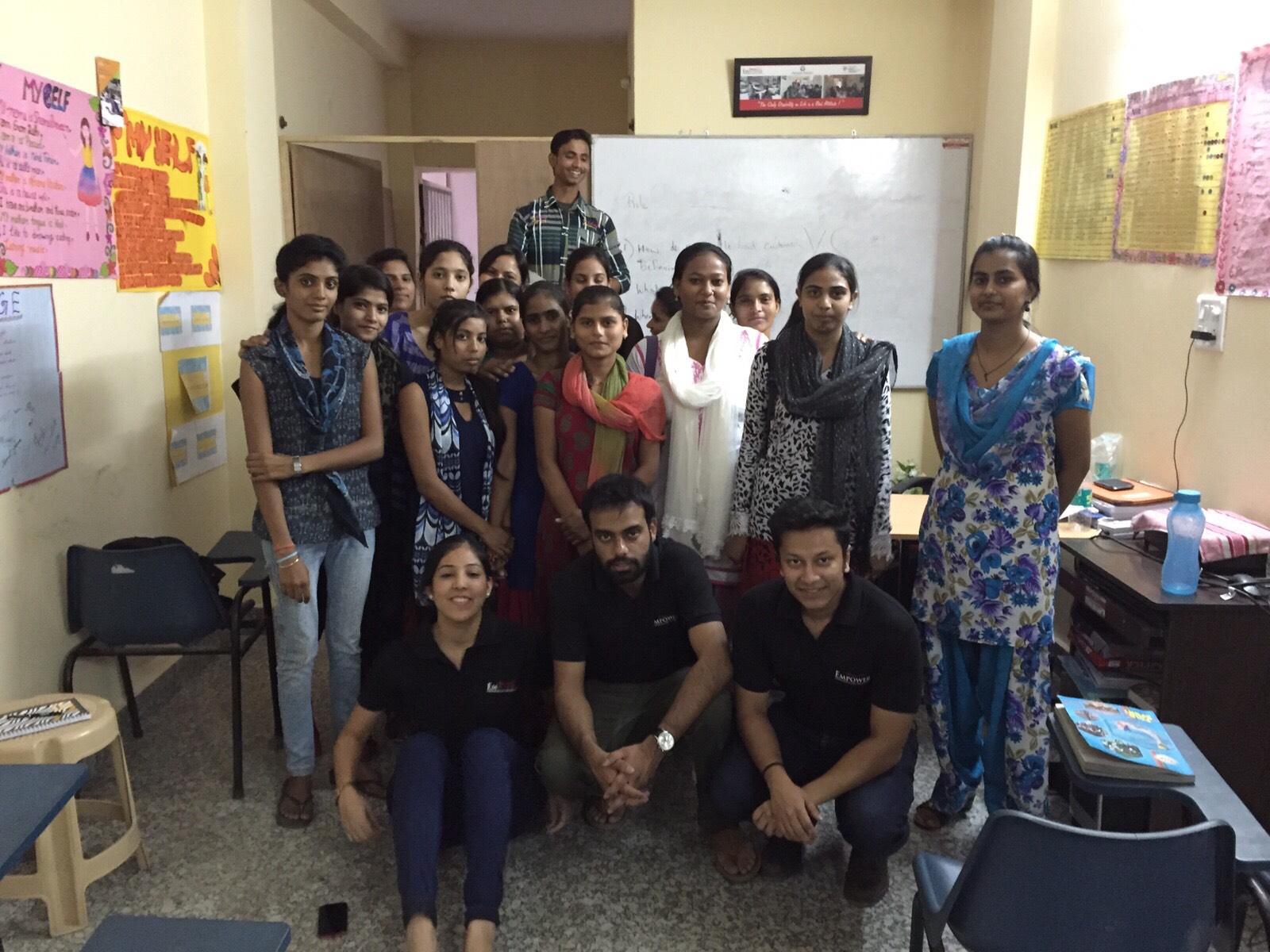
As for the training, the current curriculum is focussed around soft skills to train people working in sales. “Employability index is built on factors affecting motivation and pre-requisite soft skills required for the job. We recognised that 50% of the role of a retail associate is related to soft skills, communication, confidence, knowing how to behave in what situations, etc. But right now, the trainers at many skilling centres are not well-equipped to be able to talk about specific solutions. Vocational training is still not very aspirational in our country, therefore finding a quality trainer is even harder, especially in tier 2 and tier 3 cities. They lack not only teaching skills but also, most importantly, the ability to motivate the student to work, talk to his/her parents effectively, build his/her confidence using better teaching techniques,” says Abhinav. The team also partnered with Boston University, Abhinav’s alma mater, to organise detailed sessions on financial literacy, email writing, and women empowerment and more, which were conducted by experts.
How it works:
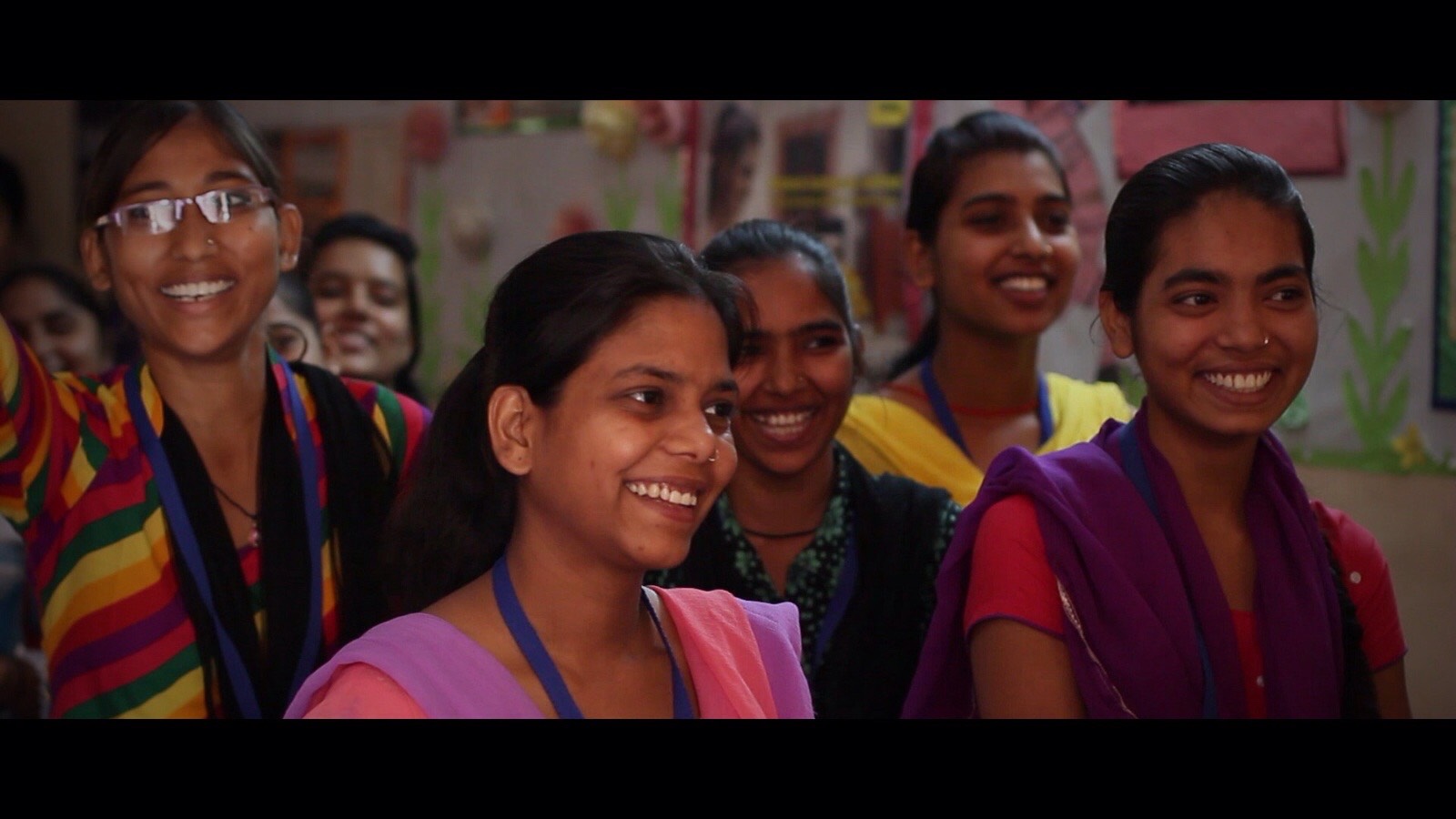
In the first session, volunteers ensure that the whole class works as a team with an atmosphere of sharing and participation, so that no one is conscious about making mistakes. Following this, they are assigned tasks like interviewing sales people in malls and then small shop owners and street sellers, etc. Notes from these tasks are used to help students with examples on functioning in the field and how they should perform when they get similar jobs.
There are mentor-mentee sessions as well where volunteers discuss students’ individual problems. “One of the most impactful sessions that we have seen so far are those that involve students writing down their fears. We then discuss these fears once every week. We noticed that some of the students who had never spoken in class started expressing themselves after these sessions,” says Abhinav. The other classes involve motivation and counselling sessions with parents. “It’s a mix of everything to make our students job-ready,” says Abhinav.
The team and the change it has created:
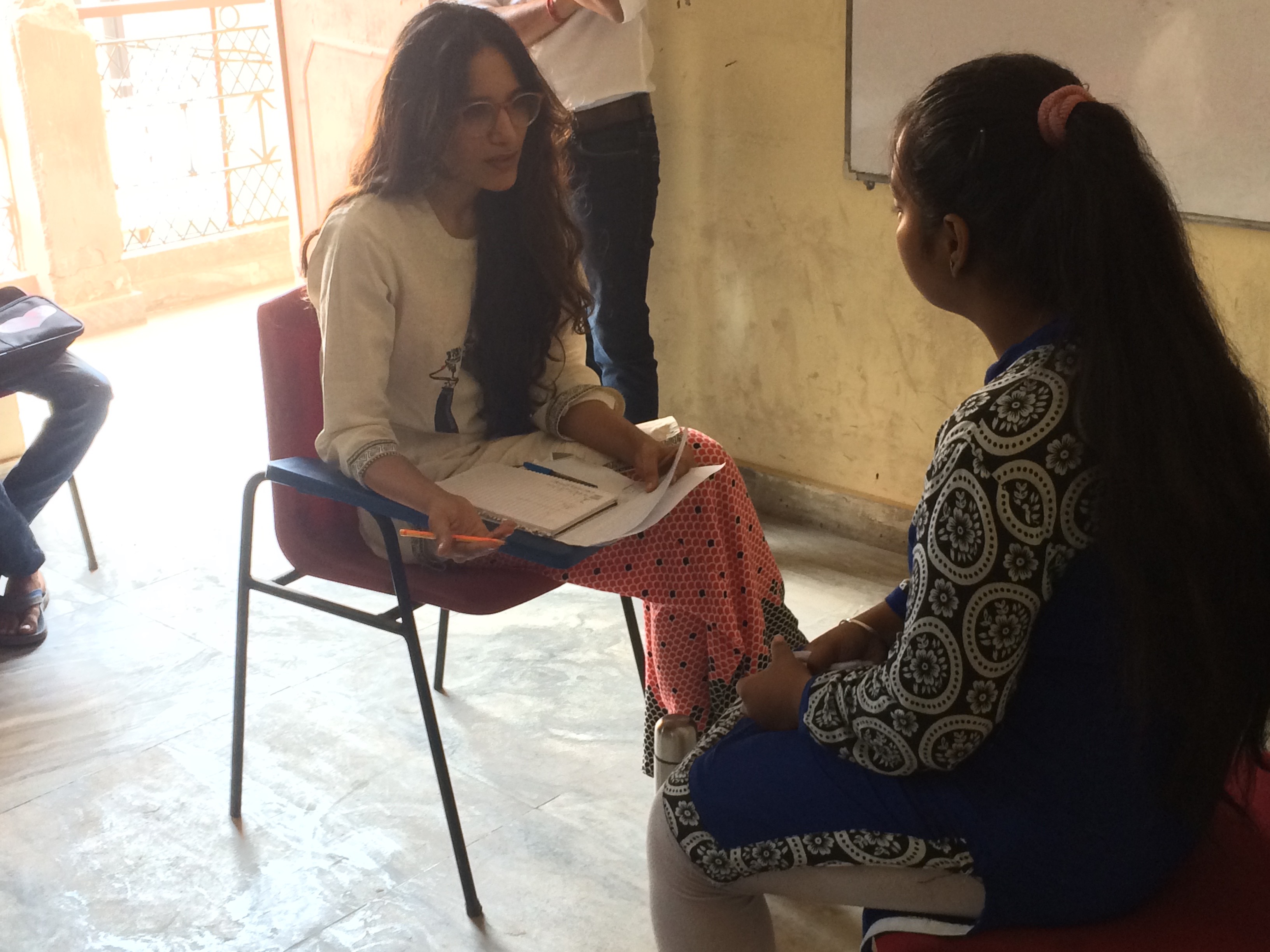
Most of Project Abhyudaya’s volunteers come from corporate backgrounds. Some of them are lawyers, IT professionals, architects, etc. Everyone, including the founders, have full-time jobs and they make time for the project each week. The team is closely working with Empower Pragatil, which funds the initiative too. Recently, as a part of Empower Pragati’s programme called Kiran, the volunteers conducted sessions on women’s health with their students to talk about the importance of hygiene and healthcare for a productive work-life. .
The team is now planning to expand to more areas of training in more centres.
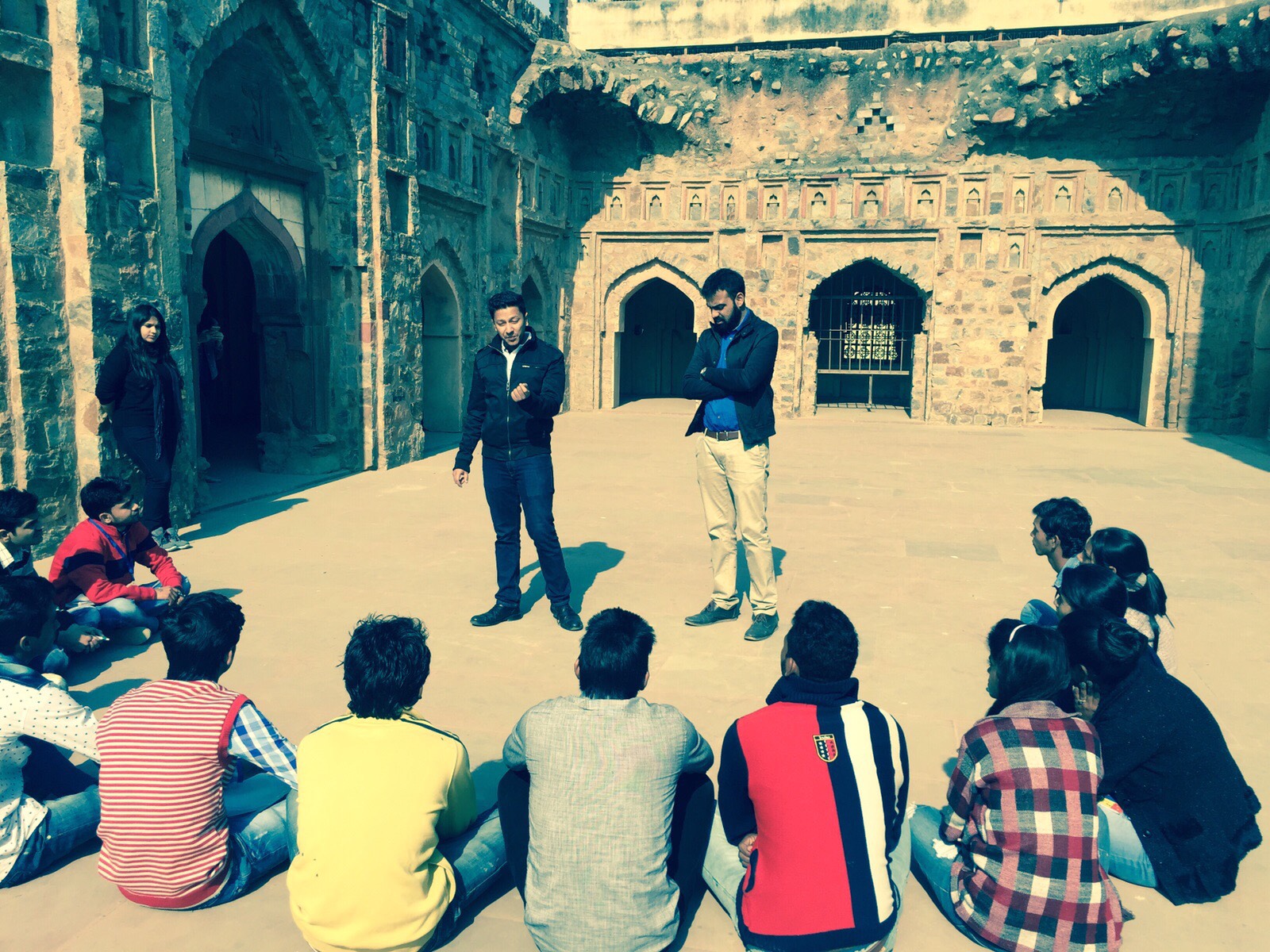
Abhinav concludes by talking about one of Project Abhyudaya’s most motivating stories of change. “We had a girl named Pooja in the first batch. She was extremely quiet in the beginning but started to open up slowly with the help of our activities. During one session she mentioned that it was only her mom in her family who supported her dreams when it came to working. Her brothers and father wanted her to get married. We counselled her and told her how she could talk to her mother, find out what the family’s point of view is, and then explain her thoughts in a way that everyone would understand. She came to us after a few days and said that ‘if you had not told me about how to do this, I would not have been able to get a job.’ She is now earning well, is independent, and is very happy.”
Contact the team by writing to [email protected].
This story is a part of our series with Accenture in India’s, #SkillsToSucceed initiative, aimed at advancing employment and entrepreneurship opportunities for individuals to drive impact at scale.
Like this story? Or have something to share?
Write to us: [email protected]
Connect with us on Facebook and Twitter.
NEW: Click here to get positive news on WhatsApp!
If you found our stories insightful, informative, or even just enjoyable, we invite you to consider making a voluntary payment to support the work we do at The Better India. Your contribution helps us continue producing quality content that educates, inspires, and drives positive change.
Choose one of the payment options below for your contribution-
By paying for the stories you value, you directly contribute to sustaining our efforts focused on making a difference in the world. Together, let’s ensure that impactful stories continue to be told and shared, enriching lives and communities alike.
Thank you for your support. Here are some frequently asked questions you might find helpful to know why you are contributing?


This story made me
-
97
-
121
-
89
-
167











